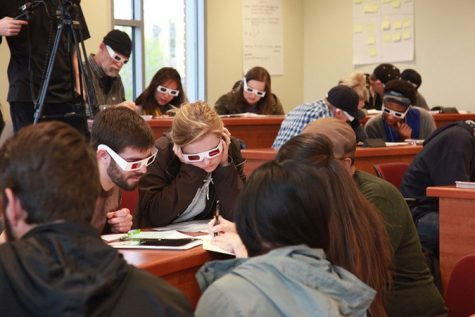Tips for academic success
Even though the new semester has just begun, you may already feel bogged down with homework or have even fallen behind. With reading to do for Old Testament class and a paper already assigned for your English literature class, the first waves of stress and anxiety might begin to hit you as you stare at multiple assignment sheets and don’t know where to start.
Even though the new semester has just begun, many students are beginning to show signs of stress and work anxiety.
September 30, 2008
Even though the new semester has just begun, you may already feel bogged down with homework or have even fallen behind. With reading to do for Old Testament class and a paper already assigned for your English literature class, the first waves of stress and anxiety might begin to hit you as you stare at multiple assignment sheets and don’t know where to start.
Not to fear, helpful homework tips are here!
Provided by University of California, San Diego and various other university websites, these tips for academic success will ensure less stress and better organizational skills as you prepare to dive into the never-ending homework pool.
• Location matters: Find a good place to study with minimal distractions where you can concentrate. For some students, this place might be their dorm rooms, the library or the SUB. It’s important to know your personal habits when studying: if studying requires your full concentration, don’t fool yourself into thinking you can study while friends hang out in your room.
• Good habits are hard to break: If you do a little bit of homework every day, instead of waiting until Sunday night to start everything, you will feel less anxious and are not as likely to succumb to stress later. Studying for your classes daily can help you retain information gained from reading or class lectures.
• Seek and you shall find: Get to know your professors and TAs. Find out office hours, e-mail addresses and the best ways to contact your professors once classes begin. By becoming familiar with your professors, you can establish a direct connection with them and will feel more comfortable asking them questions on material you do not understand.
• Plan ahead: Calendars and planners can be your best friends as you balance time between homework, classes, social activities and down time. Try to plan ahead if you have exams coming up and need extra time to study. Conducted studies show that students should plan to spend a minimum of two hours studying outside of class for every hour spent in class.
• Take notes: If you take notes regularly in your classes, you can always use them to refresh your memory later and they will be useful in preparation for exams. When you take notes, listen for examples and emphases on key concepts.
• Skip the skipping: Your professors will tell you that you need to be in class and attempt to enforce this by counting attendance as part of your grade. You should attend lectures yourself instead of having a friend go and share their notes with you; his notes are not going to make up for what you might have learned or gained if you had physically been there yourself. You might miss valuable information if you skip just one class session. If unexpected situations occur and you can’t attend class, be sure to talk with the professor immediately to find out what you missed.
• Go the extra mile: Take advantage of review sessions, tutoring and extra credit. Review sessions will often cover popular topics that might be on an exam. With tutoring, you can get individual help on areas of weakness. Extra credit is like a bonus opportunity; if your schedule allows, try to get a few extra points to serve a as a “security blanket” in case you don’t do so well on a future assignment or exam.
• Stay energized: As the semester progresses, it might be increasingly harder to study and focus. Stress and fatigue wear down the memory. Try to stay healthy by eating, sleeping (a decent amount) and exercising daily.
• Remember important points: Memorize important information in the way that works best for you, whether it is making flash cards, highlighting books or using a dry-erase board. Before an exam, test yourself on the information without looking at the book or your notes.
• Avoid procrastination: While some procrastination might be inevitable, try to steer clear of it. Once the workload starts to pick up and you’re overwhelmed with assignments, it can be hard to catch up and be adequately prepared for all of your classes. Instead of planning to start that research paper several nights before it’s due, try to spend a little time every day working on it – you will feel more organized, relaxed and perhaps create a better product.







